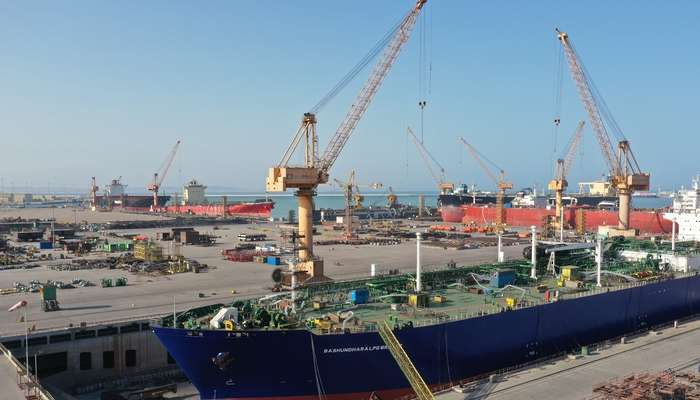
Muscat: The impact on Oman's economy is expected to be relatively limited and not concerning in the medium to long term, said Dr. Nasser Al-Maawali, Undersecretary of the Ministry of Economy on the United States' decision to impose new tariffs on Omani imports.
Further elaborating about the new US decision, he explained that “the US imports of Omani oil, gas, and refined products are exempt from the new tariffs and as such Sultanate’s economy will remain relatively unafffected”.
Dr. Al-Maawali pointed out that the potential impacts on Oman’s economy could come through channels such as disruptions in global trade and slower global economic growth. However, he also highlighted promising opportunities for Oman’s economy amidst these challenges.
He pointed out that the high US tariffs on other countries including GCC could enable Oman to expand its trade relations with affected trading partners and attract foreign investment.
Additionally, Oman can strengthen supply chains with nations negatively impacted by the US tariffs and leverage its strategic position as a transit hub to access the US market on behalf of countries facing elevated tariffs.
Dr. Al-Maawali underscored Oman's ability to turn challenges into opportunities by capitalising on its geographical advantages and proactive economic strategies. These measures reflect Oman's vision to ensure economic resilience and foster global partnerships, he further pointed out.
The tariffs range from 10 percent on Oman, the UAE Saudi Arabia and other GCC countries like Kuwait, Bahrain and Qatar.
Earlier, Trump had announced he plans to visit UAE, Saudi Arabia and Qatar, as early as May. The White House further has said that the new tariffs will come into effect on April 5, with the higher rates for some countries to be enforced starting April 9.
"It's our declaration of independence," Trump said at an event in the White House Rose Garden. He displayed a poster that listed reciprocal tariffs, including China (34 per cent), European Union (20 per cent), Vietnam (46 per cent), Taiwan (32 per cent), Japan (24 per cent), India (26 per cent), United Kingdom (10 per cent), Bangladesh (37 per cent), Pakistan (29 per cent), Sri Lanka (44 per cent), Israel (17 per cent).
Additionally, starting April 9, countries with the largest trade deficits with the US will face higher, individualised tariffs.